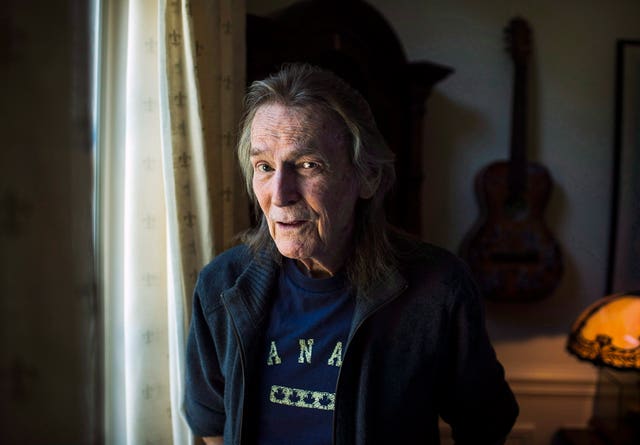
Gordon Lightfoot, Canada’s legendary folk singer-songwriter has died at the age of 84.
The musician’s hits, which included Early Morning Rain and The Wreck of the Edmund Fitzgerald, told a tale of Canadian identity that was exported worldwide.
Representative Victoria Lord said the Lightfoot died at a Toronto hospital on Monday. His cause of death was not immediately available.
Considered one of the most renowned voices to emerge from Toronto’s Yorkville folk club scene in the 1960s, Lightfoot went on to record 20 studio albums and pen hundreds of songs, including Carefree Highway and Sundown.

Once called a “rare talent” by Bob Dylan, dozens of artists have covered his work, including Elvis Presley, Barbra Streisand, Harry Belafonte, Johnny Cash, Anne Murray, Jane’s Addiction and Sarah McLachlan.
Most of his songs are deeply autobiographical with lyrics that probe his own experiences in a frank manner and explore issues surrounding the Canadian national identity.
His 1975 song The Wreck of the Edmund Fitzgerald chronicled the demise of a Great Lakes ore freighter, and 1966’s Canadian Railroad Trilogy depicted the construction of the railway.
“I simply write the songs about where I am and where I’m from,” he once said. “I take situations and write poems about them.”

Often described as a poetic storyteller, Lightfoot remained keenly aware of his cultural influence. It was a role he took very seriously.
“I just like to stay there and be a part of the totem pole and look after the responsibilities I’ve acquired over the years,” he said in a 2001 interview.
While Lightfoot’s parents recognised his musical talents early on, he did not set out to become a renowned balladeer.
He began singing in his church choir and dreamed of becoming a jazz musician. At age 13, the soprano won a talent contest at the Kiwanis Music Festival, held at Toronto’s Massey Hall.
“I remember the thrill of being in front of the crowd,” Lightfoot said in a 2018 interview. “It was a stepping stone for me.”

Lightfoot made his popular radio debut with the single (Remember Me) I’m the One in 1962, which led to a number of hit songs and partnerships with other local musicians.
When he started playing the Mariposa Folk Festival in his hometown of Orillia, Ontario that same year, Lightfoot forged a relationship that made him the festival’s most loyal returning performer.
By 1965, Lightfoot’s song I’m Not Sayin’ was a hit in Canada, which helped spread his name in the United States.
As the folk music boom came to an end in the late 1960s, Lightfoot was already making his transition to pop music with ease.

In 1971, he made his first appearance on the Billboard chart with If You Could Read My Mind. It reached no 5 and has since spawned scores of covers.
Lightfoot’s popularity peaked in the mid-1970s when both his single and album, Sundown, topped the Billboard charts, his first and only time doing so.
During his career, Lightfoot collected 12 Juno Awards, including one in 1970 when it was called the Gold Leaf.
In 1986, he was inducted into the Canadian Recording Industry Hall of Fame, now the Canadian Music Hall of Fame.
He received the Governor General’s award in 1997 and was ushered into the Canadian Country Music Hall Of Fame in 2001.


Comments: Our rules
We want our comments to be a lively and valuable part of our community - a place where readers can debate and engage with the most important local issues. The ability to comment on our stories is a privilege, not a right, however, and that privilege may be withdrawn if it is abused or misused.
Please report any comments that break our rules.
Read the rules here